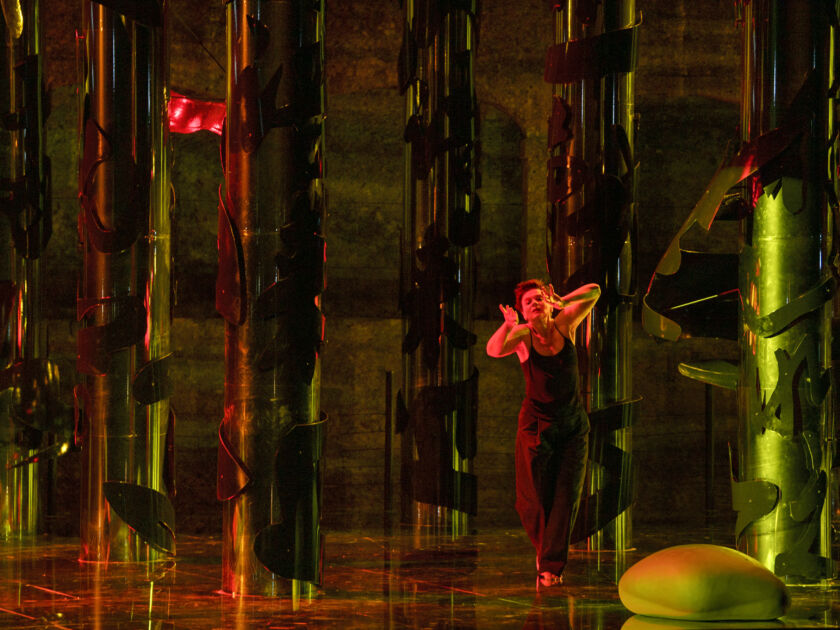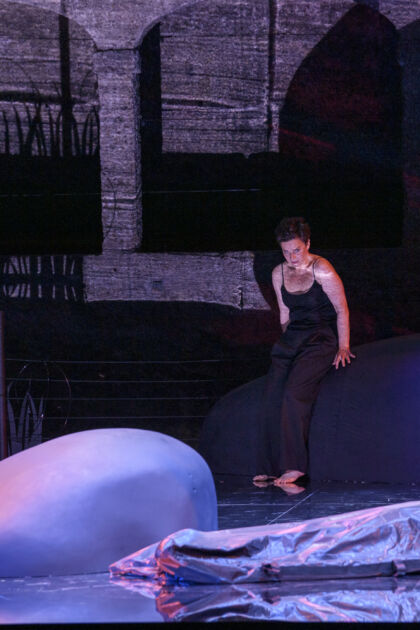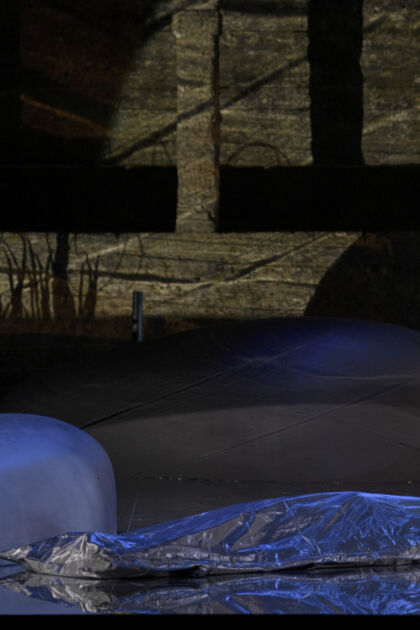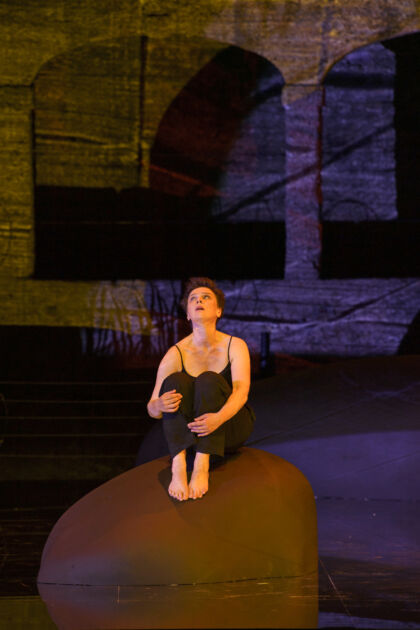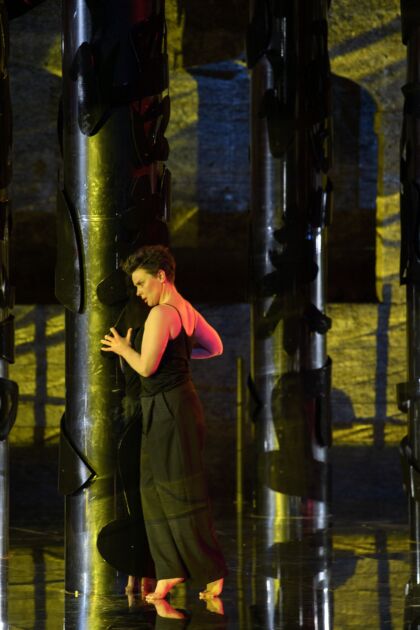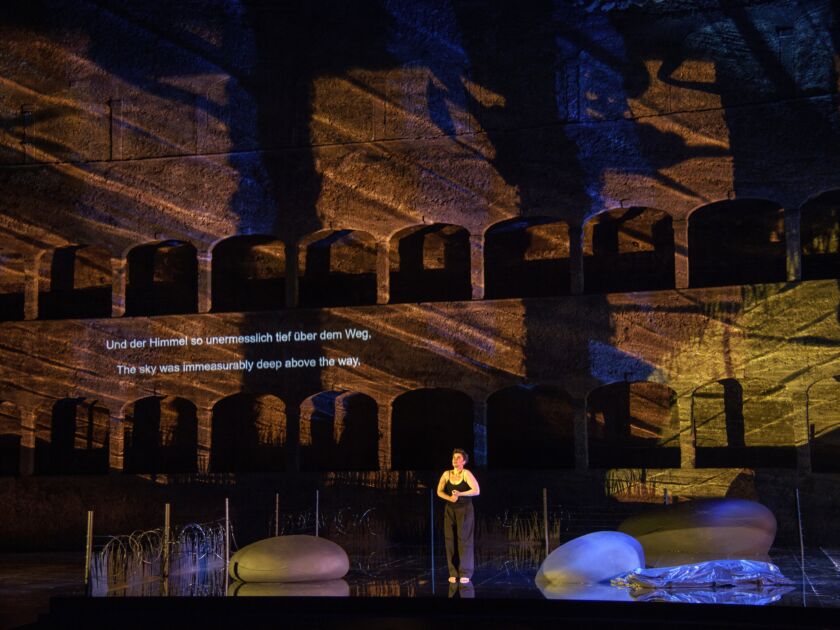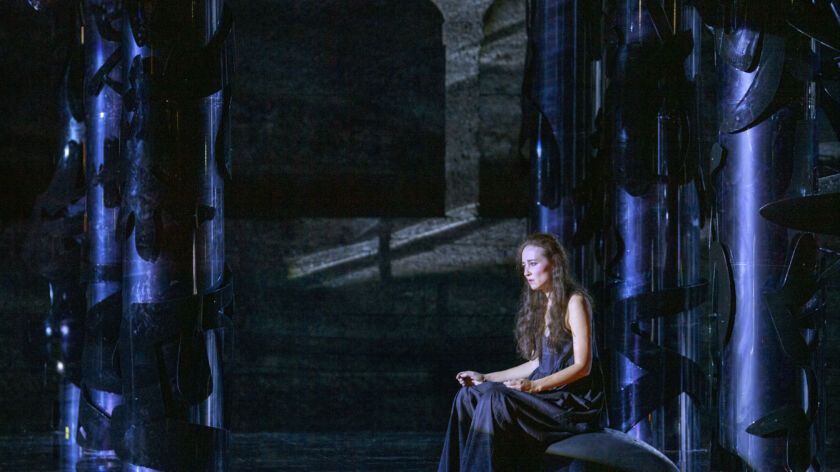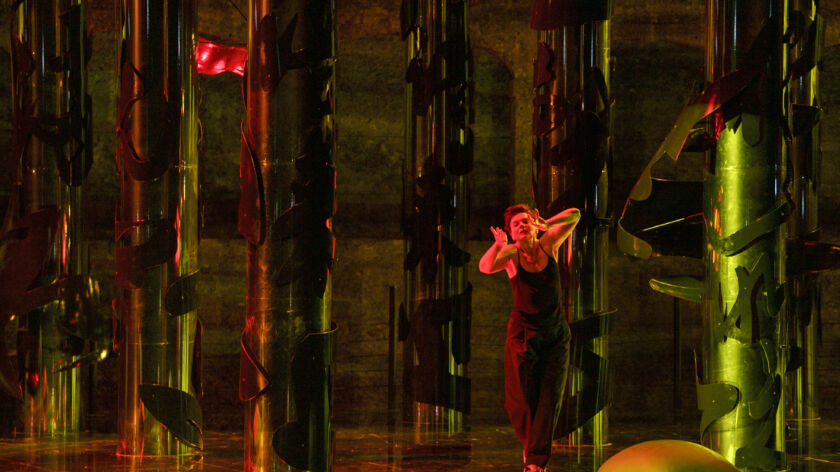Gustav Mahler and Arnold Schoenberg, both iconic figures of early 20th-century music, were bound by a mutual sense of admiration and respect. They built a bridge between Romanticism and modernism thanks to their respective transformative visions. Performing their works in the same evening brings these two major artistic perspectives into dialogue with one another and invites us to listen to complementary answers to existential or intimate questions.
In 1909 Arnold Schoenberg composed Erwartung (Expectation), a monodrama for soprano and orchestra to a libretto by Marie Pappenheim, a Viennese poet and doctor. This libretto follows the thoughts of a woman looking for her lover in a dark forest before she eventually finds him dead. Schoenberg created an expressive score for this text, a score in which each musical phrase seems to emerge spontaneously from the emotions of the protagonist.
Although it is commonly accepted that Erwartung was written under the influence of the concept of hysteria developed by Sigmund Freud, Freud’s theory has since been disproved by Alice Miller and the feminist psychoanalysis on which director Peter Sellars has drawn. The women interviewed by Freud did not invent their traumas; they were being harassed and abused. Their conditions were not the result of physical dysfunction, but rather bore violent witness to reality. Recent scientific research has corroborated this idea by demonstrating that every cell in our body bears the mark of trauma.
At a time when violence seems ubiquitous and the future uncertain, Peter Sellars argues that the extremes and intensity of Erwartung are not expressionist exaggerations, but instead reflect the actual experience of existential wounds. Rather than viewing the work as a portrait of a disorientated woman, the director approaches Schoenberg’s masterpiece as a lyrical poem expressing doubt, heartbreak, and hope in the face of despair.
Composed around the same time as Erwartung, ‘Der Abschied’ (The Farewell) closes Das Lied von der Erde (The Song of the Earth), one of Gustav Mahler’s most introspective and moving works. The composer wrote it against a backdrop of personal upheaval: he had just given up his position at the Vienna Court Opera, he was mourning the recent death of his daughter, and heart disease was compromising his own health. These tribulations led Mahler to a meditation on finitude and mortality, which he expressed in an unclassifiable work that is as much a symphony as a vocal cycle. Das Lied von der Erde, and ‘Der Abschied’ in particular, unfold sonic landscapes that evoke both the rhythm of the seasons and the cycle of life with extraordinary finesse. Although Mahler never composed an opera, this score allows us to dream about what he might have written for the stage, a dream now realized by Peter Sellars as part of his regular congenial collaboration with the Finnish conductor Esa-Pekka Salonen.
‘Der Abschied’ portrays a woman waiting for a friend, to say goodbye to him forever. Mahler based his work on Chinese poems rewritten in German by Hans Bethge, in particular texts by Wang Wei, a leading poet of the Tang dynasty and author of the line that gives the evening its title: ‘One Morning Turns into an Eternity’.
Peter Sellars returns to Mahler’s primary inspiration, the original Chinese poems and Eastern spiritual traditions, in order to probe the detachment that is specific to the end of the work. In ‘Der Abschied’, contrary to the custom of his time, Mahler chose a fragile, open conclusion: the voice fades out on the words ‘Ewig … ewig …’ (Forever… forever…), leaving the listener in suspense.
By combining two key scores in the history of modernity, One Morning Turns into an Eternity invites listeners on an original introspective journey, where grief and rage give way to revelation and transcendence.
Antonio Cuenca Ruiz
Translation from the French: Patrick Lennon

